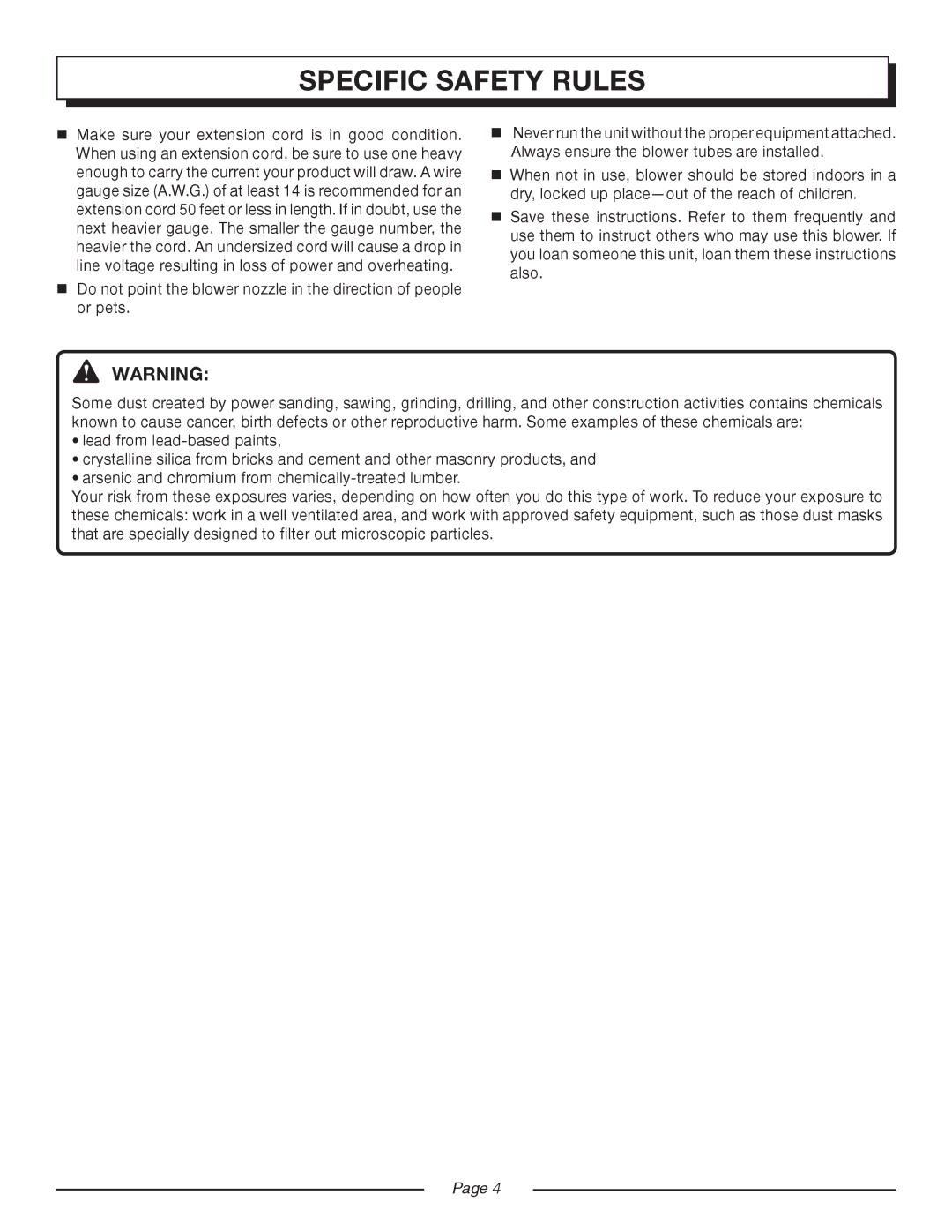UT42799 specifications
The Homelite UT42799 is a versatile and powerful string trimmer designed for homeowners and garden enthusiasts alike. This robust tool has become well-known for its reliability and user-friendly features, making it a popular choice for maintaining lawns and garden areas.One of the standout features of the UT42799 is its lightweight design, which allows for easy maneuverability around various obstacles in your yard, such as flower beds, trees, and fences. Weighing less than many comparable models, the trimmer reduces operator fatigue, enabling users to tackle larger areas with minimal strain.
The UT42799 boasts a powerful 27cc, 2-cycle engine, delivering ample cutting power to trim through dense grass and weeds effortlessly. The engine is designed to provide a balance between performance and fuel efficiency. With its easy-to-start system, users can get to work without the frustration often associated with starting small engines. The trimmer is equipped with a primer bulb and an automatic choke system, ensuring quick and reliable starts every time.
One of the highlights of the UT42799 is its .095-inch dual line feed head, which allows for quick and efficient trimming. The bump feed mechanism is user-friendly, allowing operators to simply tap the head on the ground to release more line as needed, ensuring continuous cutting without interruptions. The cutting width of 17 inches provides a broad swath, allowing users to cover larger areas in a shorter amount of time.
Another notable aspect of the Homelite UT42799 is its comfort features. The adjustable telescoping shaft enables users of varying heights to find their optimal working position, reducing strain on the back and arms during extended use. Additionally, the padded handle enhances grip and control, allowing users to navigate tight spaces with confidence.
Safety features also take precedence in the UT42799 design. The protective shield minimizes debris and ensures user safety while operating the trimmer. Furthermore, the engine cover is designed to reduce vibrations, creating a more comfortable experience for users during operation.
In summary, the Homelite UT42799 string trimmer is a well-rounded tool that combines power, ease of use, and comfort. Whether you're tackling overgrown grass or maintaining tidy edges, this trimmer proves to be an excellent investment for any lawn care enthusiast. With its mix of innovative technology and thoughtful design, the UT42799 stands out in a competitive market, ensuring that users can achieve a beautifully manicured lawn with minimal effort.

